
Five nutrients you didn’t know were in eggs
By Egg Farmers of CanadaVitamin A
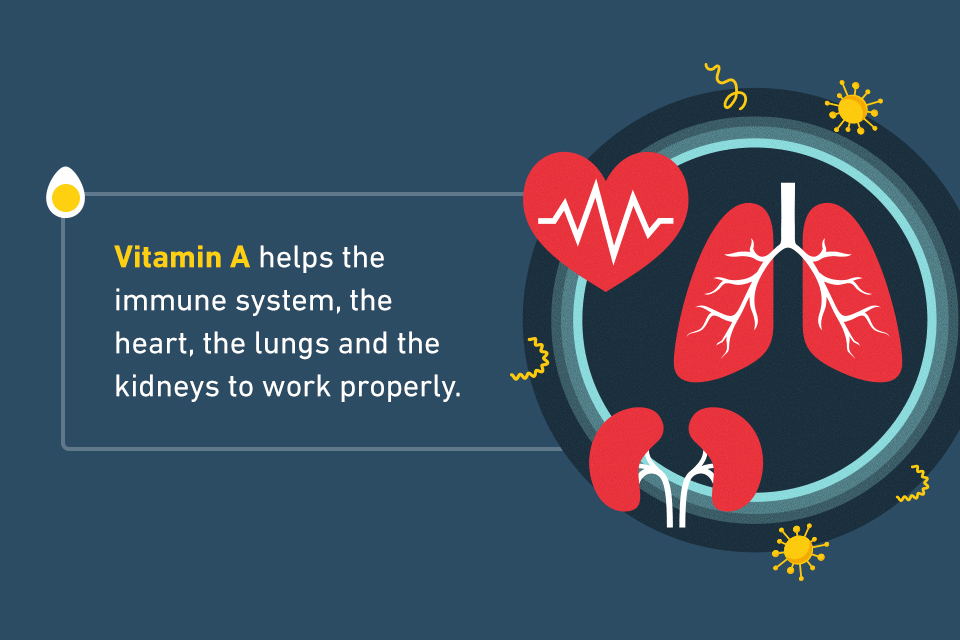 A 2012 Health Canada study found that many adults have inadequate intakes of vitamin A.2 It’s an important vitamin that helps to maintain healthy skin and eye tissue—meaning better night vision.3 It helps the immune system, the heart, the lungs and the kidneys to work properly.4 That’s one hard-working vitamin! And eggs are an excellent source of vitamin A.
A 2012 Health Canada study found that many adults have inadequate intakes of vitamin A.2 It’s an important vitamin that helps to maintain healthy skin and eye tissue—meaning better night vision.3 It helps the immune system, the heart, the lungs and the kidneys to work properly.4 That’s one hard-working vitamin! And eggs are an excellent source of vitamin A.
Vitamin D
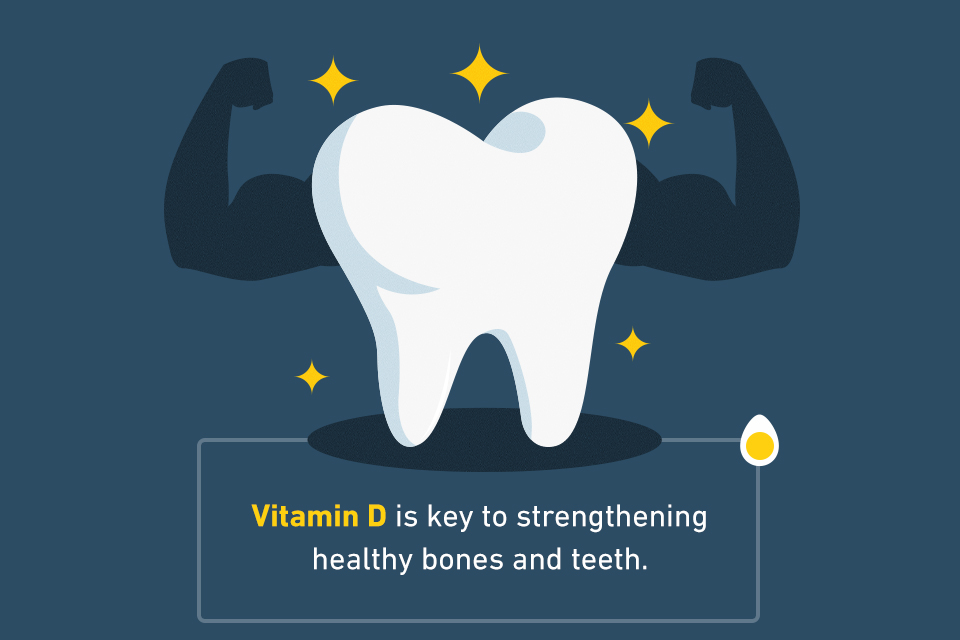 This is another vitamin many Canadians aren’t getting enough of.5 But it’s also one whose benefits are well known. Vitamin D is key to strengthening healthy bones and teeth and may protect against certain cancers and auto-immune diseases.6 There are plenty of reasons to get your proper daily intake of vitamin D—and eggs can help you do it!
This is another vitamin many Canadians aren’t getting enough of.5 But it’s also one whose benefits are well known. Vitamin D is key to strengthening healthy bones and teeth and may protect against certain cancers and auto-immune diseases.6 There are plenty of reasons to get your proper daily intake of vitamin D—and eggs can help you do it!
Choline
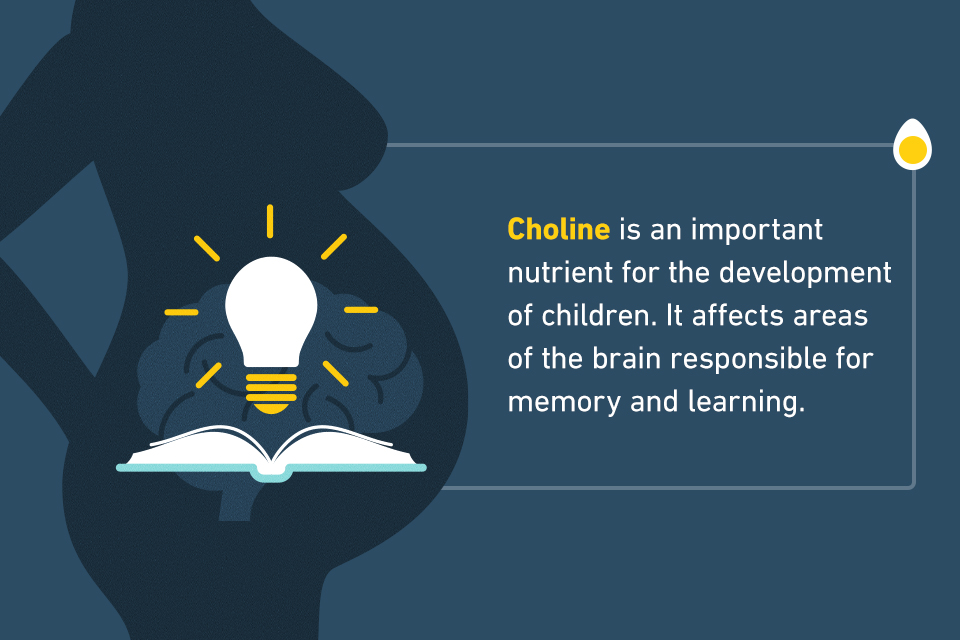 There’s a decent chance you haven’t heard of choline. Choline supports the development of children. Choline affects areas of the brain responsible for memory and learning.7 Yet one University of Toronto study found that 87% of pregnant women consumed less than the recommended amount of choline.8 But here’s the good news: researchers found that pregnant women who consumed at least one egg in a 24-hour period were eight times more likely to meet the recommendation for choline.9
There’s a decent chance you haven’t heard of choline. Choline supports the development of children. Choline affects areas of the brain responsible for memory and learning.7 Yet one University of Toronto study found that 87% of pregnant women consumed less than the recommended amount of choline.8 But here’s the good news: researchers found that pregnant women who consumed at least one egg in a 24-hour period were eight times more likely to meet the recommendation for choline.9
Vitamin E
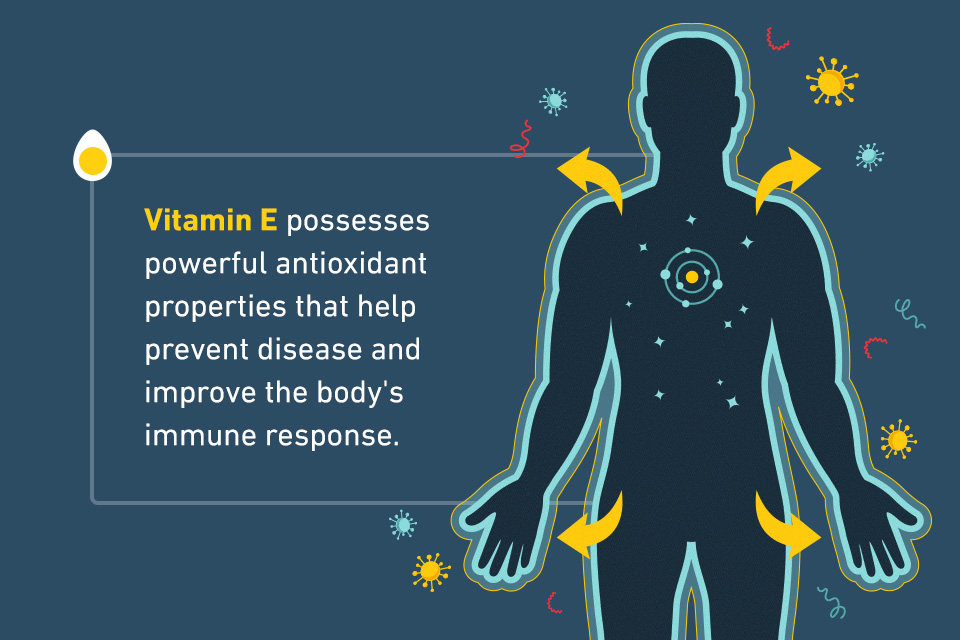 Vitamin E is a unique nutrient in that it is almost exclusively obtained through the foods we eat. It’s not stored in the body, so we need to eat foods containing vitamin E regularly. It has powerful antioxidant properties which can help prevent disease and improve the body’s immune response to help keep you healthy. Vitamin E also plays a role in keeping your skin bright and your eyes healthy. Eggs are an excellent source of Vitamin E, providing 27% of your daily needs in just two large eggs.10
Vitamin E is a unique nutrient in that it is almost exclusively obtained through the foods we eat. It’s not stored in the body, so we need to eat foods containing vitamin E regularly. It has powerful antioxidant properties which can help prevent disease and improve the body’s immune response to help keep you healthy. Vitamin E also plays a role in keeping your skin bright and your eyes healthy. Eggs are an excellent source of Vitamin E, providing 27% of your daily needs in just two large eggs.10
Lutein and zeaxanthin
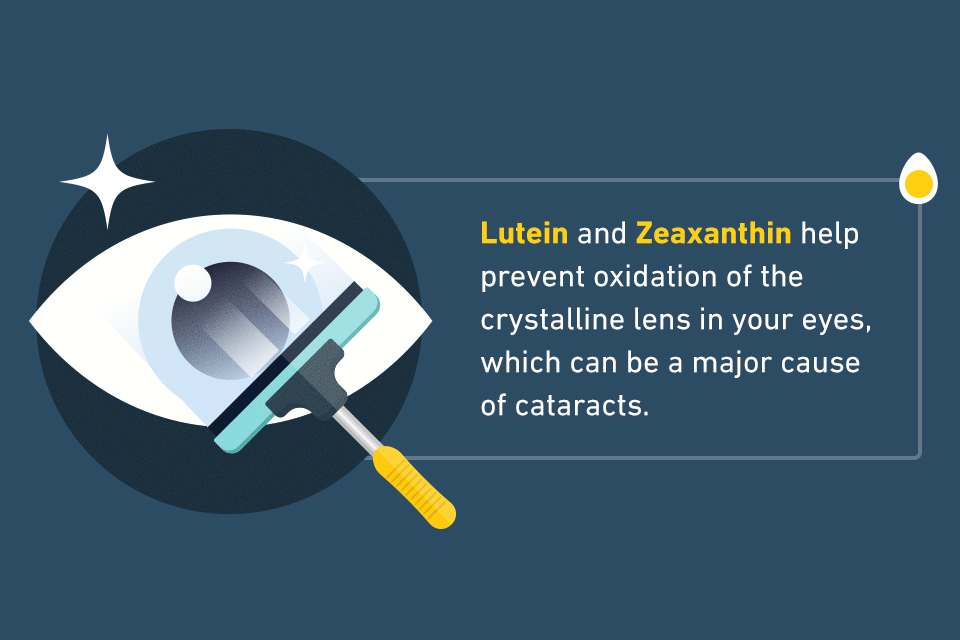 A health challenge facing aging Canadians is visual impairment. Lutein and zeaxanthin can help Canadians fight back. They help prevent oxidation of the crystalline lens in your eyes, which can be a major cause of cataracts—these cataracts cloud the lens and lead to visual impairment.11 The human body does not naturally produce lutein and zeaxanthin, so eating foods that include these antioxidants is key—thankfully, the eggs you enjoy contain these important nutrients.12
Whether it’s protein, convenience, or all the nutrients we talked about above, there’s so much to love about eggs! They’re a delicious delivery mechanism for a host of wholesome goodness, so get cracking and enjoy.
A health challenge facing aging Canadians is visual impairment. Lutein and zeaxanthin can help Canadians fight back. They help prevent oxidation of the crystalline lens in your eyes, which can be a major cause of cataracts—these cataracts cloud the lens and lead to visual impairment.11 The human body does not naturally produce lutein and zeaxanthin, so eating foods that include these antioxidants is key—thankfully, the eggs you enjoy contain these important nutrients.12
Whether it’s protein, convenience, or all the nutrients we talked about above, there’s so much to love about eggs! They’re a delicious delivery mechanism for a host of wholesome goodness, so get cracking and enjoy.
1 Health Canada. (2019). Canada’s food guide. Government of Canada.
2 Health Canada. (2012). Do Canadian adults meet their nutrient requirements through food intake alone? Government of Canada.
3 Egg Farmers of Canada. (n.d.). All about the egg. Get Cracking.
4 National Institutes of Health. (n.d.). Vitamin A – Consumer fact sheet. Office of Dietary Supplements.
5 Health Canada. (2012). Do Canadian adults meet their nutrient requirements through food intake alone? Government of Canada.
6 Egg Farmers of Canada. (n.d.). All about the egg. Get Cracking.
7 Zeisel, S. H. (2006). Choline: Critical role during fetal development and dietary requirements in adults. Annual Review of Nutrition.
8 Masih, S. P., Barr, S. I., & Britz-McKibbin, P. (2015). Pregnant Canadian women achieve recommended intakes of one-carbon nutrients through prenatal supplementation but the supplement composition, including choline, requires reconsideration. Journal of Nutrition.
9 Lewis, E. D., Subhan, F. B., Bell, R. C., & McCargar, L. J. (2014). Estimation of choline intake from 24 h dietary intake recalls and contribution of egg and milk consumption to intake among pregnant and breastfeeding women in Alberta. British Journal of Nutrition.
10 Chay, W. Y., Yu, J., Hoo, R. L. C., & Xu, A. (2021). Vitamin D supplementation improves lipid metabolism and oxidative stress in high-fat diet-fed rats. Food & Function.
11 Academy of Nutrition and Dietetics. (2021). Iron: An essential nutrient.
12 American Optometric Association. (n.d.). Diet and nutrition.